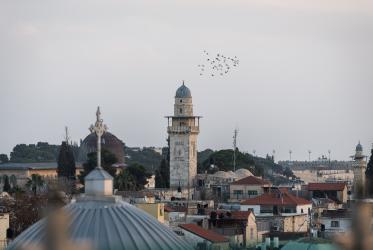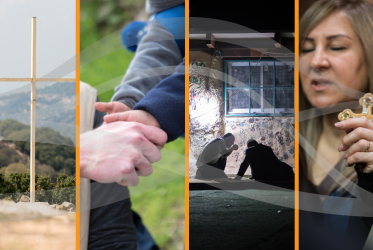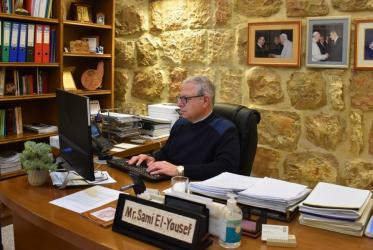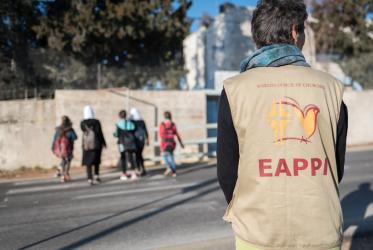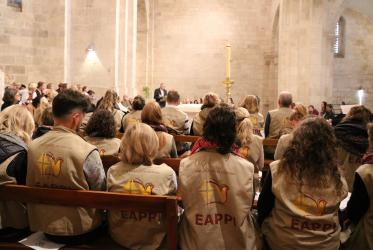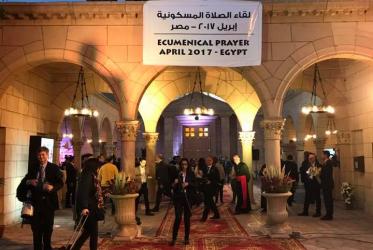Displaying 1 - 20 of 21
16 May 2023
As olive harvest draws to a close, who is helping the farmers?
08 December 2020
Fr Jamal Khader: “We need to keep hope alive” in Palestine
25 November 2020
WCC reiterates standpoints against antisemitism
20 January 2020
Dr Saïd Ailabouni: God is on the side of rejected, oppressed, occupied
12 September 2019
Shabbat dinner ‘helps humanize two sides of the story’
27 March 2019
WCC gravely concerned over Israel’s travel ban
09 March 2017
Praying for one another, even when we disagree
02 March 2017
